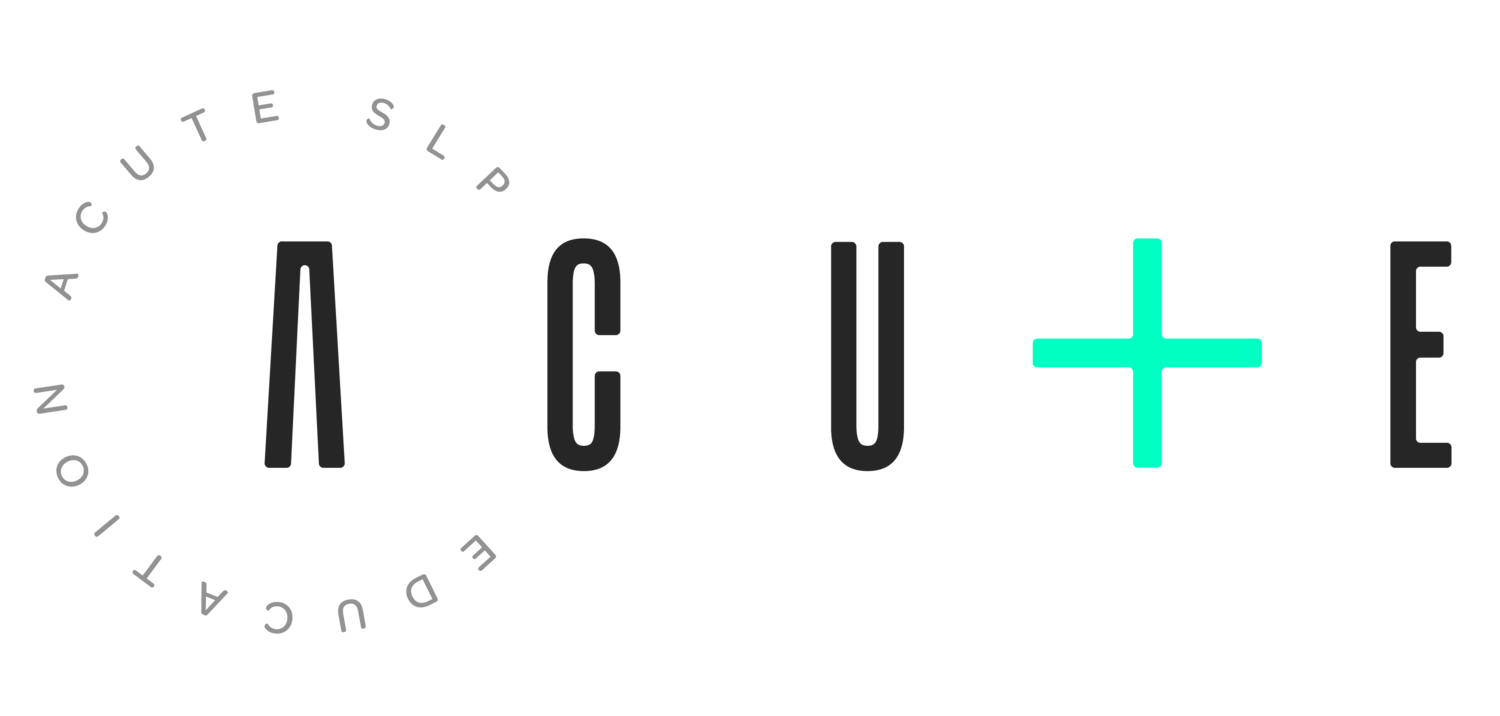ADDITIONAL COURSE INFORMATION:
Course Complexity:
Intermediate-Advanced
Peer Reviewers:
Intensivist/Pulmonologist – Dr. Cynthia Kim, MD
Neurologist – Dr. Antonio Liu, MD
Trauma Surgeon – Dr. Olivier Urayeneza, MD
Radiologist – Dr. Jason Chu, MD
Registered Dietitian Nutritionist – Danielle Whithorne, RDN
Learner Objectives:
Describe the utility and limitations of available diagnostic methods for dysphagia in the acute care setting
Explain the potential pathogenesis of dysphagia in critically ill patient populations, specifically those with acquired brain injury, cardiothoracic surgery, respiratory failure, spinal cord injury, and neck trauma populations
Identify preferred dysphagia diagnostic methods for special populations based on possible or probable dysphagia pathogenesis
Course Agenda:
Introduction: 0-3 minutes (3 min duration)
Dysphagia diagnostic modalities
Clinical Swallow Evaluations: 3-24 minutes (21 min duration)
Videofluoroscopic Swallow Studies: 24-27 minutes (3 min duration)
Flexible Endoscopic Evaluations of Swallowing: 27-30 minutes (3 min duration)
Dysphagia in special populations
Acquired brain injury: 30-53 minutes (23 min duration)
Cardiothoracic surgery: 53-75 minutes (22 min duration)
Respiratory failure: 75-98 minutes (23 min duration)
Spinal cord injury/anterior cervical decompression and fusion: 98-115 minutes (17 min duration)
Blunt and penetrating neck trauma: 115-131 minutes (16 min duration)
Practical considerations for dysphagia management
Timing of dysphagia diagnostics: 131-141 (10 min duration)
Prognostics & nutrition/hydration recommendations: 141-154 min (13 min duration)
Total time: 154 minutes (2.5 hours)
Speaker Information and Disclosures:
Kelsey Day, MS, CCC-SLP, BCS-S is an acute care Speech-Language Pathologist (SLP) and Board-Certified Specialist in Swallowing and Swallowing Disorders who specializes in dysphagia management for the medically complex, critically ill, and tracheostomy dependent populations. She currently serves as the Lead SLP in a trauma and stroke center in downtown Los Angeles, where she supervises a team of nine acute care SLPs. Kelsey prides herself on fostering strong physician relationships and investing in new program development, which facilitate state-of-the-art care for her patients. She demonstrates her commitment to the education of medical SLPs through her mentorship and supervision of graduate student clinicians and Clinical Fellows in the acute care setting. She is a guest lecturer at several graduate-level SLP programs, visiting faculty at university hospital systems, and invited international keynote speaker.
Financial Disclosures:
Salary from California Hospital Medical Center
Speaker fees from prior live presentations of this course content as “Early Dysphagia Diagnostics for the Acute Care SLP” for JFK University Medical Center and the NL Association of Speech-Language Pathologists and Audiologists
Ownership of Acute SLP Education, LLC, which operates this website and collects tuitions
Non-Financial Disclosures:
None
FAQs:
Can I earn continuing education credit for this webinar?
Yes, this course is offered for Professional Development Hours (PDHs) – formerly known as Certification Maintenance Hours (CMHs).
ASHA Certification Maintenance Standards require that all certificate holders (CCC-SLP) must accumulate 30 professional development hours (PDHs) [formerly certification maintenance hours (CMHs)] during each 3-year certification maintenance interval in order to maintain their ASHA Certificates of Clinical Competence (CCC).
For additional information regarding PDHs and requirements for professional development during your 3-year maintenance interval for ASHA, please visit https://www.asha.org/certification/factdef/ and see the below cited references.
American Speech-Language-Hearing Association. (n.d.). Professional development activities. Professional Development Activities. Retrieved March 2, 2022, from https://www.asha.org/certification/factdef/
American Speech-Language-Hearing Association. (n.d.). Professional Development for Certification. for Certification. Retrieved March 2, 2022, from https://www.asha.org/certification/profdevelopment/
American Speech-Language-Hearing Association. (n.d.). Requirements for maintaining your asha certification. Requirements for Maintaining Your ASHA Certification. Retrieved March 2, 2022, from https://www.asha.org/certification/maintain-ccc/
For whom is this webinar appropriate?
This course is appropriate for any medical Speech-Language Pathologist practicing in the area of dysphagia management. This course is tailored toward dysphagia diagnostics in the critical care setting, though information is also applicable to SLPs in post-acute settings. This course is also appropriate for current graduate students in Speech-Language Pathology who have completed introductory coursework in dysphagia and neuroanatomy/neurophysiology and who plan to work in acute care settings.


